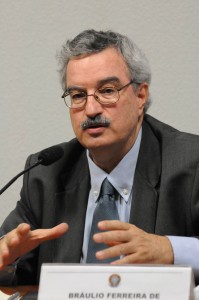Enforcing the notion that a healthy natural environment is one of the world’s most important tourism attractions, and that visiting nature serves to heighten awareness of its intrinsic value for us all, a new manual launched by the Secretariat of the Convention on Biological Diversity (CBD) presents guidelines on sustainable tourism and management.

Geared towards being both practical and accessible, Tourism Supporting Biodiversity: A Manual on applying the CBD Guidelines on Biodiversity and Tourism Development, highlights the important role tourism plays for biodiversity and aims to improve knowledge and materials to better integrate biodiversity into sustainable tourism development.
“The manual is a reference tool for planners, developers, managers and decision makers involved with tourism development and resource management in areas of sensitive biodiversity,” said Braulio Ferreira de Souza Dias, CBD Executive Secretary. “The purpose is to help them to mainstream biodiversity concerns and ecosystem services within sustainable tourism development.”
With its emphasis on management and governance, the manual, prepared as a result of experiences compiled by the Secretariat and decisions taken by countries at the eleventh and twelfth meetings of the Conference of the Parties to the CBD, reflects a wider perspective on approaches and experiences in sustainable tourism development and management. It serves to complement the more technical User’s Manual on the CBD Guidelines on Biodiversity and Tourism Development, published in 2007.
The manual is the result of a collaboration between the CBD Secretariat, the United Nations World Tourism Organisation (UNWTO), the United Nations Environment Programme (UNEP), the International Union for Conservation of Nature (IUCN), and some 140 experts from around the world to identify current trends and upcoming issues and opportunities on the links between sustainable tourism development and the CBD agenda, and is meant to be used as a transformative tool for sustainable consumption.
“UNEP appreciates the collaboration and looks forward to replicating and improving the useful experiences listed in the manual at regional and local levels through activities and projects with partners and the tourism sector”, said Arab Hoballah, Chief of the Sustainable Consumption and Production Branch in the Division of Technology, Industry and Economics of UNEP. “Lessons learned can then be shared with Parties to help deliver a transformative change and transition to a truly inclusive green economy.”
“The focus is on the tourism sector to stop biodiversity loss,” said Dirk Glaesser, Director of UNWTO’s Sustainable Development of Tourism Programme. “It is also an enormous opportunity to engage with the more than one billion tourists travelling internationally and accelerate their preferences for more sustainable tourism products.”
The attention of CBD Parties to biodiversity and tourism development forms just one part of a wider international movement to promote and enhance the sustainability of the tourism sector. The manual, prepared in coordination with IUCN’s groundbreaking new publication, Tourism and Visitor Management in Protected Areas: Guidelines for Sustainability, with both publications providing a solid base for capacity-building and cooperation activities, was supported by the Federal Ministry for the Environment, Nature Conservation, Building and Nuclear Safety of the Government of Germany. Project leader Nicola Breier, Head of the Ministry’s Marine Biodiversity unit, said, “Germany is glad to have contributed to this effort also by sharing its diverse experiences in making sustainable tourism work for nature. We hope that this manual, as a tool to promote travel practices that benefit biodiversity, will be widely used by practitioners in the tourism sector.”
